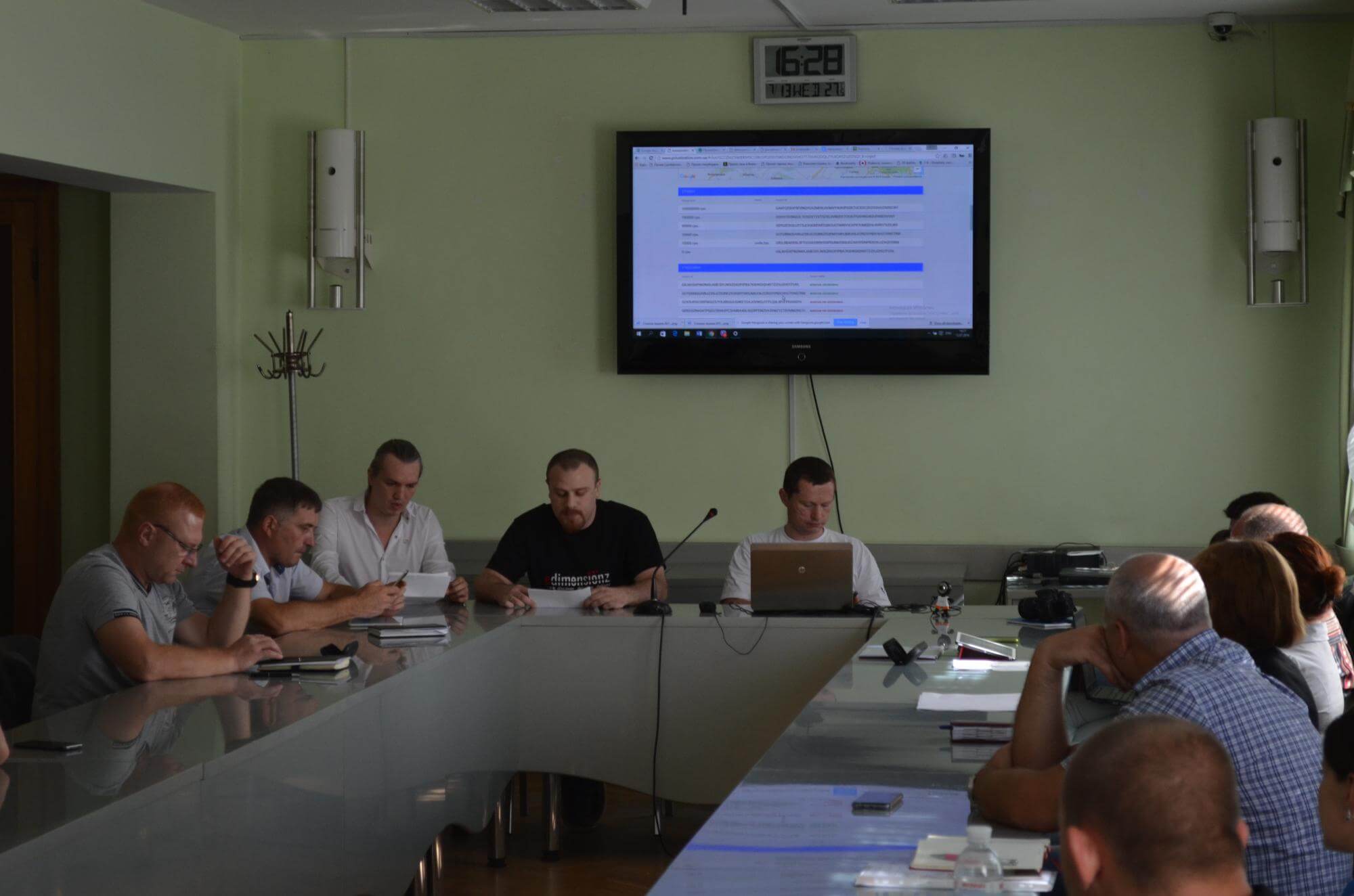Joomla is a versatile content management system (CMS) favored by web developers and businesses for its user-friendly interface and extensive features. Joomla makes it easy to create and manage websites, whether you're building a simple blog or a complex e-commerce site.
For Joomla websites, search engine optimization (SEO) is essential. Joomla SEO includes various practices aimed at boosting your website's visibility on search engine results pages (SERPs). By optimizing your Joomla site for search engines, you can attract more organic traffic, enhance your site's credibility, and increase conversions and sales.
Joomla SEO Basics
Search Engine Optimization (SEO) refers to the process of enhancing a website's visibility and ranking on search engine results pages (SERPs). It involves various techniques and practices that help search engines understand your site's content and determine its relevance to user queries. Effective SEO ensures that your website appears higher in search results, attracting more organic traffic.
For small businesses, Joomla SEO is especially important. With limited marketing budgets, small businesses can benefit significantly from organic search traffic. By optimizing your Joomla website, you can:
- Increase Online Visibility: Higher search engine rankings mean more potential customers can find your business.
- Build Credibility: Websites that rank well are often perceived as more trustworthy and authoritative.
- Drive More Traffic: Improved SEO leads to more visitors, which can result in more leads and sales.
- Cost-Effective Marketing: SEO provides a sustainable way to attract customers without relying on paid advertising.
Joomla SEO Features and Extensions
Joomla comes equipped with several built-in SEO features that make it easier to optimize your website for search engines:
- SEO-Friendly URLs: Joomla allows you to create clean and readable URLs, which are preferred by search engines. You can enable this feature in the global configuration settings.
- Metadata Management: Joomla provides options to add meta titles, descriptions, and keywords for your content. This helps search engines understand the context of your pages.
- Breadcrumbs: Joomla includes breadcrumb functionality, which improves site navigation and helps search engines understand the structure of your site.
- Customizable Page Titles: You can set custom page titles for better keyword optimization and improved search engine ranking.
- Robots.txt and .htaccess Files: Joomla allows you to edit these files to control how search engines crawl and index your site.
Popular SEO Extensions for Joomla
To further enhance your Joomla website's SEO, consider using these recommended extensions:
- sh404SEF
This popular extension helps manage URLs, create SEO-friendly links, and provides advanced analytics and security features. - JSitemap
JSitemap offers a comprehensive solution for creating and managing sitemaps, including XML, HTML, and mobile sitemaps. It also integrates with Google Search Console for better indexing. - OSMap
This extension creates detailed sitemaps that help search engines index your site more effectively. It supports Google, Bing, and other major search engines. - Google Structured Data
The Google Structured Data extension for Joomla enhances your site's SEO by adding structured data markup, which helps improve your appearance in Google search results.
Using Joomla's Global Configuration for SEO
Setting Up Site Metadata
Properly setting up site metadata is crucial for improving your Joomla website's SEO. Metadata includes meta titles, descriptions, and keywords that help search engines understand the content of your pages.
- Access Global Configuration:
- Log in to your Joomla administrator panel.
- Go to System and select Global Configuration.
- Set Meta Titles and Descriptions:
- Under the Site tab, you’ll find fields for Site Name, Site Meta Description, and Site Meta Keywords.
- Site Name: Ensure your site name is relevant to your business and includes important keywords.
- Site Meta Description: Write a concise and compelling description of your site, incorporating primary keywords naturally. This description should summarize the content and purpose of your website.
- Site Meta Keywords: Add a list of relevant keywords that describe your site's content. While not as important as they once were, keywords can still provide context for search engines.
- Enable Global Metadata:
- Ensure that the Global Site Meta Description and Global Site Meta Keywords are filled out to apply these settings across your entire site.
Configuring SEO-Friendly URLs
SEO-friendly URLs are clean, readable, and include keywords relevant to the page content. They improve user experience and help search engines index your pages more effectively.
- Enable SEO Settings:
- In the Global Configuration section, go to the Site tab.
- Find the SEO Settings section and enable the following options:
- Search Engine Friendly URLs: This option removes unnecessary characters from URLs, making them cleaner and more readable.
- Use URL Rewriting: This setting allows Joomla to use .htaccess or web.config files to create clean URLs.
- Adds Suffix to URL: This adds a suffix (such as .html) to the end of your URLs, which can help with SEO.
- Unicode Aliases: Enable this if your site uses non-Latin characters in URLs.
- Rename htaccess.txt to .htaccess:
- In your Joomla root directory, rename the
htaccess.txtfile to.htaccess. This allows URL rewriting to work correctly.
- In your Joomla root directory, rename the
- Customize URL Aliases:
- When creating or editing articles, you can manually set the URL alias to include relevant keywords. This ensures that your URLs are descriptive and optimized for search engines.
Crafting SEO-Friendly Titles and Meta Descriptions
Creating compelling and SEO-friendly titles and meta descriptions is essential for attracting both search engines and users to your Joomla articles.
- SEO-Friendly Titles:
- Make sure your main keywords are included naturally in the title.
- Aim for a title length of 50-60 characters to ensure it displays well in search results.
- Craft a title that is both informative and appealing to encourage clicks.
- Meta Descriptions:
- Provide a brief and accurate summary of the article’s content.
- Include relevant keywords, but ensure the description reads naturally.
- If appropriate, include a call to action to encourage users to click on your link.
- Keep the meta description between 150-160 characters to ensure it fits well in search results.
Using Keywords Effectively in Content
Effective keyword usage within your Joomla articles can significantly enhance their SEO.
- Keyword Placement:
- Include your primary keyword in the title of the article.
- Use the primary keyword naturally in the opening paragraph.
- Incorporate keywords into H2 and H3 headings to signal the content’s relevance to search engines.
- Distribute keywords evenly throughout the article, maintaining a natural flow.
- Avoid Keyword Stuffing:
- Keywords fit naturally into sentences. Overusing keywords can harm readability and may be penalized by search engines.
- Use Latent Semantic Indexing (LSI) keywords—related terms and phrases—to add context and relevance to your content.
Optimizing Images and Media
Images and other media elements are important for user engagement and SEO. Here’s how to optimize them effectively:
- File Names:
- Use descriptive file names that include relevant keywords instead of generic names like IMG001.jpg.
- Use hyphens to separate words in the file name (e.g., joomla-seo-tips.jpg).
- Alt Text:
- Provide a clear and concise description of the image.
- Integrate keywords naturally into the alt text, as this helps with image search optimization.
- File Size and Format:
- Use tools to compress images without losing quality to improve page load times.
- Use appropriate formats (JPG for photographs, PNG for graphics with transparency).
- Captions and Context:
- Add captions to images if relevant, as they provide additional context for search engines.
- Ensure the text around the images is relevant and includes keywords.
Advanced Joomla SEO Techniques
Creating and Submitting XML Sitemaps
XML sitemaps are essential for helping search engines understand the structure of your Joomla website and index its pages more effectively.
- Use an Extension:
- Generate the Sitemap:
- Access the sitemap extension from your Joomla admin panel.
- Follow the extension's instructions to generate your XML sitemap. Typically, this involves clicking a button to create the sitemap.
- Submit to Search Engines:
- Google Search Console: Log in to Google Search Console and select your website. Under the Index section, click on Sitemaps and enter the URL of your sitemap (e.g.,
https://yourwebsite.com/sitemap.xml). Click Submit. - Bing Webmaster Tools: Similarly, log in to Bing Webmaster Tools, select your site, and submit your sitemap URL under the Sitemaps section.
- Google Search Console: Log in to Google Search Console and select your website. Under the Index section, click on Sitemaps and enter the URL of your sitemap (e.g.,
Implementing Structured Data and Rich Snippets
Structured data and rich snippets enhance your search listings by providing additional information to search engines. This can improve your click-through rates and overall visibility.
- Use Schema Markup:
- Add structured data to your Joomla site using Schema.org markup. This can be done manually by adding code to your HTML or by using built in feature Rich Snippets.
- Common types of structured data include articles, products, events, and reviews.
- Generate Rich Snippets:
- Structured data can result in rich snippets, which are enhanced search results featuring additional information such as star ratings, images, or event details.
- Test your structured data using Google’s Rich Results Test tool to ensure it’s implemented correctly.
Google Analytics and Search Console
Google Analytics and Search Console are powerful tools that provide insights into your website’s performance and help you improve your Joomla SEO efforts.
- Google Analytics
- Sign up for Google Analytics and add the tracking code to your Joomla site.
- Use Google Analytics to monitor your website traffic, user behavior, and conversion rates. Pay attention to metrics like bounce rate, session duration, and page views to understand how users interact with your site.
- Google Search Console
- Add and verify your Joomla site in Google Search Console. This involves adding a verification code to your site’s HTML or using a verification method provided by Google.
- Ensure your XML sitemap is submitted to Search Console.
- Use the Performance report to track your search traffic, including clicks, impressions, and average position. Identify which keywords are driving traffic and how your site is performing in search results.
- Regularly check the Coverage report for indexing issues and the Enhancements section for opportunities to improve your structured data.
Monitoring and Improving Joomla SEO Performance
Regular audits are essential to maintaining and improving your Joomla website's SEO performance. They help identify issues that could be hindering your site's visibility and provide actionable insights for enhancement.
- Content Review:
- Regularly update old articles and pages to ensure they are current and relevant. Fresh content is favored by search engines and keeps your audience engaged.
- Ensure each page has unique content. Duplicate content can confuse search engines and negatively impact your rankings.
- Technical SEO Audit:
- Use tools like Broken Link Checker to identify and fix broken links that can harm user experience and SEO.
- Site Speed: Test your site's loading speed using Google PageSpeed Insights or GTmetrix. Optimize images,browser caching, and minimize CSS and JavaScript to improve performance.
- On-Page SEO:
- Review and optimize title tags and meta descriptions to ensure they are engaging and include relevant keywords.
- Make sure your content uses header tags (H1, H2, H3) correctly to structure information and include keywords naturally.
Using SEO Tools and Analytics to Track Progress
Leveraging SEO tools and analytics can provide deeper insights into your website’s performance and help track the effectiveness of your SEO efforts.
- Google Analytics
- Monitor metrics such as organic traffic, bounce rate, session duration, and user demographics. Identify which pages are performing well and which need improvement.
- Analyze user behaviour on your site to understand how visitors navigate through your content. This can help identify any barriers to a smooth user experience.
- Google Search Console
- Track key metrics like clicks, impressions, click-through rate (CTR), and average position. This data helps you understand which keywords and pages are driving traffic.
- Monitor indexing issues and fix any errors to ensure all your important pages are being crawled and indexed by search engines.
- Check for opportunities to improve structured data and enhance search appearance through rich results.
- SEO Tools:
- SEMrush: Use SEMrush to conduct keyword research, track keyword rankings, and analyze competitors. The site audit feature helps identify and fix technical SEO issues.
- Ahrefs: Ahrefs provides comprehensive backlink analysis, keyword tracking, and site audits. It’s an excellent tool for monitoring your site's SEO health and finding link-building opportunities.
- Moz: Moz offers keyword research, rank tracking, and site audits. The MozBar browser extension is useful for quick SEO analysis of any webpage.
Effective Joomla SEO Practices
Implementing these Joomla SEO strategies will help you enhance your website's search engine ranking, attract more organic traffic, and achieve your business goals. By taking a proactive approach to SEO, you can ensure your Joomla site remains competitive and continues to grow its online presence.




